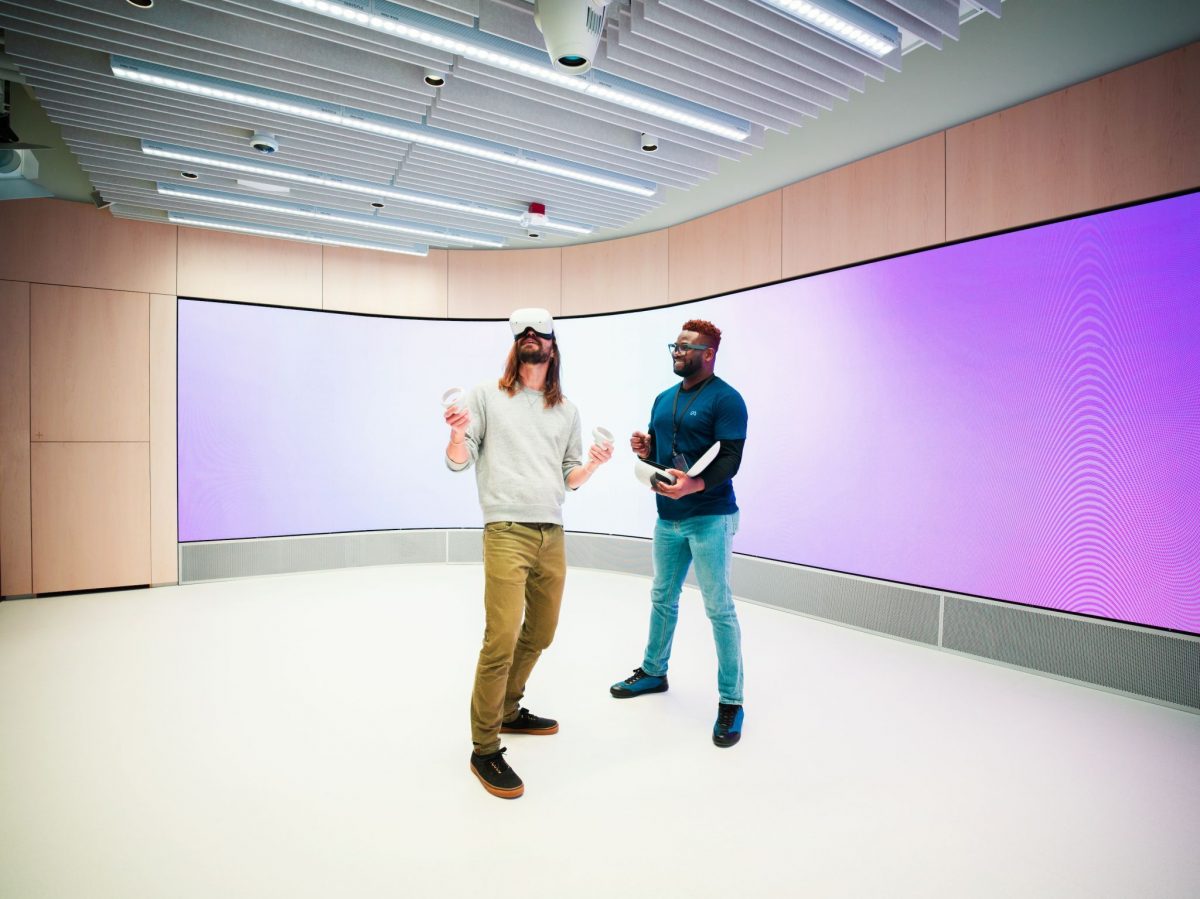Meta, the company formerly known as Facebook, is opening its first physical retail store next month in an effort to familiarize consumers with virtual reality and the “metaverse.” The “Meta Store” opens on May 9 in Burlingame, California, a city on the San Francisco peninsula near Meta’s reality Labs division.
Meta is best known for owning the world’s largest social media platform, but it’s recently pivoted its focus to building a “metaverse,” a term it’s very desperately trying to associate itself with that describes a hybrid online environment that merges the physical and digital worlds using budding technologies like augmented and virtual reality. You’re not wrong in thinking that sounds a lot like Second Life, by the way. Meta is one of many tech giants betting on mixed reality platforms becoming the future of online play, social interaction, and work.
So far, consumer penetration is relatively low due to historically high costs, bulky and potentially disorientating hardware, and a nascent ecosystem. To its credit, Meta is the clear favorite to make a breakthrough, with its critically acclaimed Quest 2 headset claiming a significant share of a rapidly growing market. It’s worth noting here that the Quest was originally sold under the Oculus name, with Oculus being the primarily gaming focused VR company that then-Facebook bought in 2014. However, Meta’s clearly looking to appeal to a wider swath of people than just gamers, adopting a welcoming wood grain styling across its store.
“Once people experience the technology, they can gain a better appreciation for it. If we did our job right, people should leave and tell their friends, ‘You’ve got to go check out the Meta Store,’” wrote Martin Gilliard, the head of Meta Store, in a blog post.
Meta’s storefront hopes to change some minds by giving customers hands-on exposure to the latest VR and AR technologies. Walk inside the rather small 1,500-square-foot store and you’ll find a “wall-to-wall” curved LED screen that displays whatever is being shown on Meta’s Quest 2 headset. In-store demos will focus on gaming, and include popular titles like Beat Saber, GOLF+, Real VR Fishing or Supernatural.
“The Meta Store is going to help people make that connection to how our products can be the gateway to the metaverse in the future. We’re not selling the metaverse in our store, but hopefully, people will come in and walk out knowing a little bit more about how our products will help connect them to it,” Gilliard wrote.
Meta CEO Mark Zuckerberg said the store would give customers a “sense of what’s coming as we build towards the metaverse.” That doesn’t exclusively involve VR or AR. Meta will also showcase its Portal smart display video capture products and Ray-Ban Stories, a pair of smart sunglasses similar to Snap Spectacles that are likely a soft launch for upcoming AR glasses. Of course, there is no mentioning these products without including a footnote about Meta’s notorious mishandling of personal user data.
Meta’s storefront should provide valuable feedback from customers who experience these products in person. If it catches on, Meta could expand its footprint significantly; The New York Times, citing “people with knowledge of the project” and company documents, reported last year that Zuckerberg’s company could open world-spanning retail stores.






